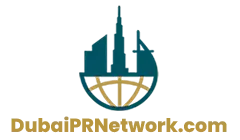
- Limited regional skills in treatment areas such as oncology and cardiology drives Arab Health to offer local physicians 28 hands-on-training sessions in specialised techniques
- More than 900 high-level healthcare professionals have registered to benefit from these niche and practical learning experiences at the region’s largest healthcare exhibition
- Sessions will focus on using state-of-the-art equipment for specialised treatments in cardiology, neurology, surgery, gastroenterology, urology, oncology and radiology
Dubai, UAE, 08 January 2017: Recent findings indicate that limited super-specialised care in areas such as oncology and cardiology are driving outbound medical tourism in the GCC . In Dubai alone, the Dubai Health Authority (DHA) spent AED 307 million towards overseas treatment for its citizens. Around 14% of this expense was incurred on neurosurgery treatments, followed by 12% on oncology treatments, 11% on orthopaedics, and around 7% on cardiology surgeries due to the existing gap in specialised care currently available in the country. These statistics show that there is an evident need for increased investment in specialised care in the region. A number of new, advanced medical hands-on-training courses, which will take place during the upcoming Arab Health Exhibition & Congress on the 30 January - 2 February 2017 at the Dubai World Trade Centre, have been added to train more than 900 healthcare specialists in advanced medical techniques and help bridge the current specialist skills gap in the region. The training will allow physicians, surgeons and technicians from the region to learn and practice new techniques utilising pioneering equipment. Training will focus on specialised treatments in cardiology, neurology, surgery, gastroenterology, urology, oncology, 3D medical printing, bariatric surgery, ultrasound, haematology, neonatal respiratory and radiology using state-of-the-art equipment. With oncology, cardiology and orthopaedic treatments accounting for 45% of the cases of GCC patients travelling abroad for treatment , Simon Page, Managing Director at Informa Life Sciences Exhibitions, commented that advancing healthcare education and access to specialised training in this region is paramount. “Investment in specialised training will not only improve a healthcare professional’s own learning and development, but it will help to improve access and outcomes for patients in this region, and attract and retain talent from across the globe. In the long run, by improving access to training sessions for specialists in this region, we are improving patient access to these innovative techniques. We believe offering hands-on-training sessions to local physicians plays a vital role in improving the level of specialised care in the UAE and puts us one step closer to achieving a world-class healthcare system in the UAE - in line with the Dubai Clinical Services Capacity Plan and the Abu Dhabi Healthcare Strategic Plan.” David Mezher, General Manager of GE Healthcare Middle East, strongly agrees that the upskilling of doctors should be a priority for the Middle East: “Providing local physicians with access to practical training in the latest innovation technologies is crucial. These hands-on-training sessions at Arab Health will ensure physicians from this region are equipped with the latest knowledge and tools to help enhance their skills and, ultimately, it will provide better outcomes for patients too.” One of the sessions lead by GE Healthcare at the upcoming Arab Health Exhibition is an innovative practical session on new digitalised detector technology available in oncology. “This training will give healthcare professionals hands-on training in tumour image acquisition using state-of-the-art diagnostic technologies which will play a crucial role in improving survival rates for patients with cancer in the future. The new detector supersedes the diagnostic capabilities of current technology, and will help improve earlier tumour diagnosis”, David continued. SAH Global’s Chief Medical Officer, Dr Allan F Thornton, who is also the world’s longest treating proton therapy radiation oncologist and, SAH Global’s Chief of Pediatric Radiation Oncology, Dr Andrew Chang, will be at Arab Health to offer a hands-on-experience in the clinical practice and application of proton therapy; a treatment currently not available in the MENA Region.
Feroz Agad, Chairman of SAH Global said, “This hands-on training in Proton Therapy, which we are offering at Arab Health Exhibition, will be the first of its kind in the MENA region. It will be a vital platform to equip doctors from across this region with specialised skills in a wide range of techniques for the delivery of Proton Therapy, including treatment planning (physics and dosimetry) and target volume drawing, without them having to travel internationally. By offering this practical learning experience in proton therapy locally, we are helping to narrow the specialised capacity gap and prepare them for what the future of healthcare in the field of radiation oncology will look like in the Middle East.” Courses will be delivered by world-renowned experts from institutions including GE Healthcare, 3D Lifeprints, Alder Hey Hospital in the UK, SAH Global Hampton Proton Therapy Institute in the U.S.A., GSD University and Research Hospitals, Carestream, Houston Methodist, Emirates Urology Society, Nihon Kohden and Philips.
|

